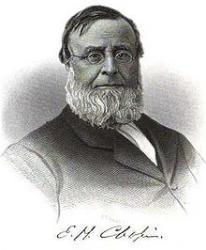Planning worship?
Check out our sister site, ZeteoSearch.org,
for 20+ additional resources related to your search.
- |
User Links
Person Results
Felix Mendelssohn-Bartholdy

1809 - 1847 Person Name: Mendelssohn Composer of "[Hark! hark! with harps of gold]" in Christian Life Songs Felix Mendelssohn-Bartholdy (b. Hamburg, Germany, 1809; d. Leipzig, Germany, 1847) was the son of banker Abraham Mendelssohn and the grandson of philosopher Moses Mendelssohn. His Jewish family became Christian and took the Bartholdy name (name of the estate of Mendelssohn's uncle) when baptized into the Lutheran church. The children all received an excellent musical education. Mendelssohn had his first public performance at the age of nine and by the age of sixteen had written several symphonies. Profoundly influenced by J. S. Bach's music, he conducted a performance of the St. Matthew Passion in 1829 (at age 20!) – the first performance since Bach's death, thus reintroducing Bach to the world. Mendelssohn organized the Domchor in Berlin and founded the Leipzig Conservatory of Music in 1843. Traveling widely, he not only became familiar with various styles of music but also became well known himself in countries other than Germany, especially in England. He left a rich treasury of music: organ and piano works, overtures and incidental music, oratorios (including St. Paul or Elijah and choral works, and symphonies. He harmonized a number of hymn tunes himself, but hymnbook editors also arranged some of his other tunes into hymn tunes.
Bert Polman
Felix Mendelssohn-Bartholdy
Joseph Haydn

1732 - 1809 Person Name: Haydn Composer of "HAYDN" in The Gospel Psalmist Franz Joseph Haydn (b. Rohrau, Austria, 1732; d. Vienna, Austria, 1809) Haydn's life was relatively uneventful, but his artistic legacy was truly astounding. He began his musical career as a choirboy in St. Stephen's Cathedral, Vienna, spent some years in that city making a precarious living as a music teacher and composer, and then served as music director for the Esterhazy family from 1761 to 1790. Haydn became a most productive and widely respected composer of symphonies, chamber music, and piano sonatas. In his retirement years he took two extended tours to England, which resulted in his "London" symphonies and (because of G. F. Handel's influence) in oratorios. Haydn's church music includes six great Masses and a few original hymn tunes. Hymnal editors have also arranged hymn tunes from various themes in Haydn's music.
Bert Polman
Joseph Haydn
Albert J. Holden
1841 - 1916 Person Name: A. J. H. Composer of "[Hark! hark! with harps of gold]" in Songs of Faith, Hope, and Love A Founder of the American Guild of Organists and composer and editor of numerous pieces and collections of sacred music (of which perhaps Songs of Faith, Hope and Love, 1883, is best known), Albert Junos Holden was born in Boston on August 17, 1841. He studied in New York City, and served there as organist of the Church of the Divine Paternity (Universalist) and of the Church of the Puritans (Presbyterian). His sacred solo "In Heavenly Love Abiding" was recorded by the "Metropolitan Quartet" on an Edison Blue Amberol cylinder, No. 3813, in 1919. He died in Longmeadow, Massachusetts, on July 16, 1916.
(source: AGO Founders Hymnal, p. 98)
Albert J. Holden
E. H. Chapin

1814 - 1880 Author of "Hark! hark! with harps of gold" in Church Harmonies Chapin, Edwin Hubbell, D.D., was the most distinguished man of the Universalists in later years. In his early days he was eminent as a lecturer; and as a preacher until his death. He was born in Union village, Washington, N. Y., Dec. 29, 1814, and educated at Bennington, Vermont. He was successively pastor at Richmond, Virginia, 1837; Charleston, Mass.; Boston, 1846; and from 1848, of the Church of the Divine Paternity, New York city. He died Dec. 26, 1880. He published several works, and edited, with J. G. Adams, Hymns for Christian Devotion, Boston, 1846. This is perhaps the most prominent Universalist Collection in the States. To it Dr. Chapin contributed the following hymns:—
1. Amid surrounding gloom and waste. During a Storm.
2. Father, at this altar bending. Installation of a Pastor.
3. Father, lo, we consecrate. Opening of a Place of Worship.
4. Hark! hark! with harps of gold. Christmas.
5. O Thou who didst ordain the word. Ordination.
6. Our Father, God! not face to face. Opening of a Place of Worship.
7. When long the soul has slept in chains. Charitable Institutions.
Of these No. 6 is the most widely used. In addition Dr. Chapin is the author of:—
8. Now host with host assembling. Temperance. This was given in Longfellow and Johnson's Book of Hymns (Unitarian), 1848, and from thence has passed Into other collections. It is entitled "Triumph of Temperance." and is well known. [Rev. F. M. Bird, M.A.]
--John Julian, Dictionary of Hymnology (1907)
E. H. Chapin


 My Starred Hymns
My Starred Hymns

